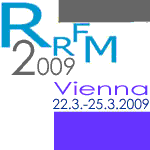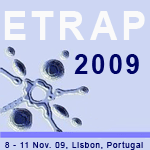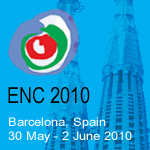
Following the formation of the Nuclear Institute in the UK, on 1st January 2009, the former education and training interests of BNES and the Institution of Nuclear Engineers are continuing with a new NI E&T committee chaired by Michael Grave, a NI Trustee and ENS General Assembly member. The committee comprises members from across the Nuclear Institute’s membership and also key stakeholders representing bodies such as industry, regulators, skills development agencies, the Nuclear Decommissioning Authority and academia. Skills are clearly a top priority as the UK and many other countries wrestle not only with meeting all engineering needs in the future but also the nuclear cycle activities of new build, operation, fuel cycle, decommissioning and waste management. It is, therefore, of great benefit to NI E&T to have representation from Cogent, the energy sector skills council that includes the nuclear sector. The attached paper was prepared by Clive Smith, the Nuclear Director at Cogent, who is also a member of NI E&T committee (ENS Editor in Chief).
Cogent Sector Skills Council: a new era for nuclear industry skills development
The ability to apply nuclear and radiological technology has a key role in the health sector, plays a principal part in national defence and is vital to the operation of the UK’s nuclear power stations and the decommissioning and clean-up of nuclear facilities.
The ability to manage the technology and to innovate is also fundamental in ensuring that the UK can build new nuclear power stations and sustain the clean energy programme the world needs now more than ever.
Employers have recognised that the ongoing supply and development of high-level science and technology skills is an imperative. The Cogent Sector Skills Council was formed with the support of the industry to develop strategic, targeted action to meet nuclear industry skills needs. Throughout its developing work programme key employers and professional bodies have taken a lead role in driving forward Cogent’s workforce development agenda.
Indeed, skills have been on the agenda for some time. In 2000, anxiety about the availability of skilled people in all nuclear and radiological roles resulted in the publication of the OECD report Nuclear Education and Training – a cause for concern. Nationally, in 2001 a Health and Safety Executive (HSE) report on nuclear education in British Universities identified a situation of an ageing academic workforce and no undergraduate courses with significant nuclear content. Around the same time, in response to skills shortages across all sectors of industry, the Government was underway with its plans to establish Sector Skills Councils. Cogent was selected by a nuclear employers’ skills group as the most appropriate body to represent the skills needs of the nuclear industry.
Upon its formation Cogent set about an analysis of the availability of Suitably Qualified and Experienced Personnel (SQEP) – responding to the industry’s need for fresh intelligence around on skills and the size of the challenge.
Through its research into nuclear skills via its Sector Skills Agreement process, it discovered a number of skills shortages, mainly in specialist resources such as Radiation Protection, Safety Case authors and some of the computational disciplines.
Skills gaps were also identified in the skill sets of the existing workforce: for instance in project management, particularly among the people working on the sites which were moving into the decommissioning and clean-up phases.
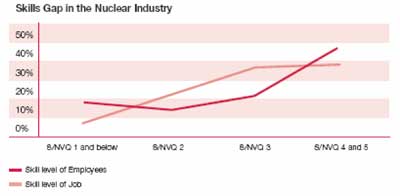
There is an over supply of people at SVNVO level 1 and below compared to the number of jobs at that level in the Nuclear Fuel Processing Industry.
Indeed Cogent SSC and Skills Academy research has identified that over the next ten years the nuclear sector will need to recruit between 5,900-9,000 graduates and 2,700 to 4,500 skilled trades just to meet the ongoing needs of decommissioning, power generation, the fuel cycle and defence. In addition, there’s a further recruitment and training need to deliver the new build programme efficiently and safely.
Resulting from this analysis was the Cogent Sector Skills Agreement (SSA): aimed at securing the range and level of skills necessary to secure a sustainable future for the industry.
An essential and exciting aspect in delivering on this agenda is the establishment of the The National Skills Academy for Nuclear, a subsidiary of Cogent. Together Cogent and the Skills Academy (alongside employers who lobbied for two years for this specialised centre of excellence), are driving a strategic skills programme. It’s a plan that takes on board the totality of the education pyramid: from schools through to apprenticeships and further education colleges, and links to graduate and post-graduate programmes.
With employers, Cogent develops the National Occupational Standards, qualifications (including reform of the system) and produces the Labour Market Information (across its sector) to supply the evidence needed to inform its work.
Cogent’s sectoral approach is also aimed developing a wider talent pool across the science-using industries to support transferability of skills (including oil and gas and downstream petroleum).
The employer-led Skills Academy is focused entirely on nuclear industry training and skills.
The National Skills Academy for Nuclear acts as the leading body for an employer-led programme to develop a standardised and coordinated approach to education, training and skills in the Nuclear Sector. Through a regional network of training clusters the Skills Academy identifies, develops and quality assures local high quality provision, creating “centres of excellence” for the delivery of Nuclear specialised training, enhanced where appropriate to respond to specific skill gaps identified by nuclear employers.
The Skills Academy is structured around the five main areas of the nuclear activity across the UK (Northwest/Northeast, Southeast/East, Southwest, Scotland and Wales, and a Regional Training Cluster (RTC) is being established in each region. Within each regional training cluster there will be a hub which will encourage the development and delivery of quality training by Skills Academy assured providers.
Where possible, the Skills Academy will build on existing good provision in the region and will work with current providers to raise the standards and ensure they are responding to employer demand. The Skills Academy will work via a variety of models: for example schemes housed within existing training centres, on employer sites, new purpose built facilities and so on – the physical presence will be dependant on what is needed for each region.
The Skills Academy is currently quality assuring interested providers for each of the regions against rigorous standards to ensure the highest quality provision is obtained.
-
In the Northwest/Northeast Region the Head Office of the Skills Academy has been opened in the Cockermouth area of West Cumbria, and upon building completion, Energus (previously known as the Nuclear Academy), will be a lead delivery arm for the region. The Springfields Engineering Apprentice Training Centre has recently been announced as a delivery centre for the Skills Academy delivering engineering training.
-
In the Southwest, Bridgwater College has been chosen to act as the RTC hub.
-
In Wales the hub will be a virtual arrangement linking together Skills Academy assured provision.
The Southeast and Scotland regions are currently under development.
At the end of May TTE Training Limited (Training Tomorrow’s Engineers), the North West’s leading provider of Engineering and Laboratory Operations Advanced Apprenticeships, was appointed as the first provider in the Academy network. The Academy is working with a number of providers who are currently working through its rigorous quality assurance procedure. This process is fundamental to ensuring a quality standard of training across the nuclear sector.
The Skills Academy is addressing the current fragmented system for the delivery of training, which has no common standards and suffers from significant duplication. In effect, each employer trains his/her own staff, evaluating them against his/her own standards, giving rise to inefficient use of both employer and public sector investment. In the first four years the Skills Academy Quality Assurance scheme aims to confirm provider status on 35 providers and allow employers to choose providers with confidence.
The skills pyramid
Through Cogent and the Skills Academy, targeted activity aimed at ensuring ongoing SQEP provision in both now and in the future, exists at all levels of the education pyramid.
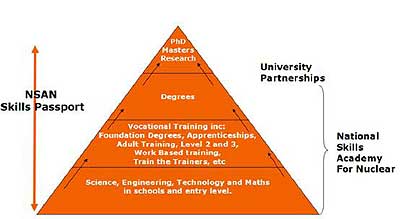
Schools and young people
Aimed at young people and advisors, Cogent’s Career Pathways is a sector-wide web initiative that provides a one-stop-shop information service via the web. It holds information on career progression, jobs, training and salaries in the nuclear industry. For example, career pathways have been developed with employers who have also provided real life case studies. www.cogent-careers.com
Nuclear careers pathway
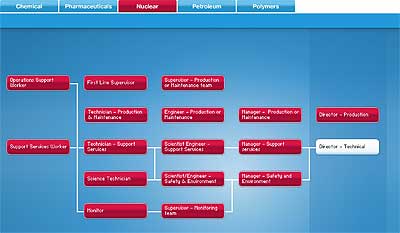
Energy Foresight is a programme offered via and funded by the Skills Academy that supports delivery of the module in the Key Stage 4 National Curriculum for science, which deals with radioactivity and related issues. The programme has been designed in conjunction with the DCSF, QCA and the awarding bodies. www.energyforesight.org The Skills Academy is also supporting the RADwaste programme which is a learning resource to enable students to examine the issues of safe management of nuclear waste
The Skills Academy is working in partnership with the Science, Technology, Engineering and Mathematics Network (STEMNET), to encourage more employees within the nuclear industry to become Science and Engineering Ambassadors (SEAs). The aim of the SEAs programme is to support teachers in delivering the STEM curriculum and to inspire and enthuse young people into science, technology, engineering and maths and
In collaboration with the Nuclear Decommissioning Authority (NDA), the Skills Academy has introduced a Community Apprenticeship Scheme to enable supply chain companies working within the nuclear sector to take on apprentices for the first time or develop additional apprentice skills for their business. This will ensure continued and better resource capability to support the Nuclear Site Licence (SLC) companies to achieve their delivery objectives safely, to time and on cost.
Upskilling and reskilling the existing workforce
Cogent’s skills programme for the existing nuclear workforce is based on the modular and progressive acquisition of skills, enabling individuals in the workplace to gain recognition for their learning at a pace that suits both them and their employers. Module development is underway to provide a skills pipeline from entry-level qualifications through to senior management, professional and technical qualifications at levels 4 and 5 (HNDs and Degrees).
A fundamental activity within the upskilling programme is the generation of the Core Roles. This is being undertaken by the Skills Academy, Cogent and employers. This process is being driven by an “Occupational and Functional Map” produced by Cogent, and has already provided a greater understanding of the emerging roles related to decommissioning activity. It also recognises the work already underway by the NDA, British Energy and other employers to reduce the overall number of roles and descriptors in current use. A detailed listing is in production, which, in the first instance will be focused on those most heavily populated occupations. These Core Roles will be made available to all employers, and will be circulated annually to test their currency.
The Nuclear Industry Training Framework (NITF) is aimed at supporting the sector to be world-class and forms an important part of qualifications reform. The Framework will link Core Nuclear Job Roles and qualifications/training programmes – initially for existing whole qualifications and then modules as they become available. It will be underpinned by an IT platform, the NITF and core roles form an integral part of the Nuclear Skills Passport (see below).
The outcome will be a clear development plan which sets out areas for learning. This plan will be linked to qualifications and modules where appropriate, with the methods of training and development clearly set out. Currently the NITF is based on full qualifications (stage one). Cogent and the Skills Academy are now developing modular qualifications, (stage two) which matches the way employers train their staff and better meets their needs. This will provide employers with bite-sized units of training targeted at particular skills needs, delivered more flexibly to accommodate a Nuclear Industry environment.
Nuclear Industry Training Framework, example of the Decommissioning Operator Core Role

Common Pathway

|
Entry / Base Qualifications |
Secondary Qualifications
Behavioural Competencies |
Generic Site, Plant and Job Specific |
Technical
Competence
|
Nuclear Decommissioning
N/SVQ Level 2
|
Performing Engineering Operations L2
Or
Supporting Engineering Activities L2
FLT & Crane Operator Licence
|
SQEP & DAP Conditions
|
Business
Improvement
|
|
Business Improvement Techniques L2
|
Site & Employer Specific
|
Compliance
|
Site Induction
Nuclear Sites Unescorted Access
Award for Nuclear Industry Awareness |
Radiation Protection N/SVQ L2
Waste Management N/SVQ L2 |
Site Specific Health & Safety Training covering Key HSE topics including COSHH and COMAH
Certificate in Manual Handling and Working at Heights (MEWP) |
Functional and
Behavioural Skills
|
Communication L2
Application of Number L2
Information Technology L2
|
Awards in:
Team Working
Employment Rights & Responsibilities
|
SQEP & DAP Conditions
|
As part of this upskilling and reskilling programme nuclear employers are shaping brand new vocational Foundation Degrees to suit their needs and to support the development of a progression path for apprentices and upskilling across the sector. In collaboration with the Skills Academy, the universities of Central Lancashire and Portsmouth are jointly developing and delivering the leading-edge Foundation Degrees that are needed by the nuclear sector to support job progression opportunities. The universities will work with the Skills Academy and other partners to provide Foundation Degrees for school leavers, new entrants and individuals retraining. In Scotland the University of Highlands and Islands is leading on the development of Higher National Diplomas to fulfil a similar role. There are also important university alliances – for example the Nuclear Technology Education Collaboration (NTEC) which is made up of 11 Universities and Higher Education Institutions delivering Nuclear MScs in operations, maintenance and decommissioning and clean-up.
Finally, the Nuclear Skills Passport scheme is a critical element in the strategy to upskill and reskill the nuclear workforce. A joint Cogent and Skills Academy work programme, the web-based Passport platform, will provide all employees and contractors within the nuclear sector, including those from large employers and SMEs, with a physical record of all their industry specific training and qualifications. The passport scheme will lead to improved performance by providing a management system to assess training against agreed standards and the recording of industry/role specific competencies.
This standardisation will enable a portability of employment between SLC sites, which will help to address the peaks and troughs of work/demand across the industry. The scheme will also aid licensees in the demonstration to the nuclear regulators that all workers are suitably SQEP, by providing a physical system for proof of skills.
Creating a Passport
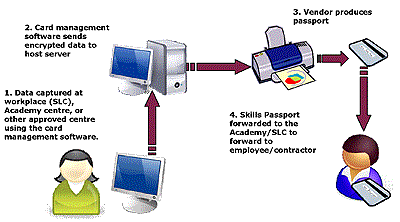
Using a Passport

The scheme will enable a secure management of training records of all transferable industry training records and provide a facility for competence management including:
-
Career pathway.
-
Nuclear Industry Training Framework implementation – which will link qualifications and training to job roles. Learning will be broken down into bite sized chunks (assessed units) which will be converted to assessed units by an awarding body.
-
Accreditation of Prior Experience & Learning (APEL).
-
Skills Gap Analysis and Training Signposting.
-
Verification process for all training records input onto the passport system.
By recording training qualifications such as the new “Nuclear Sites-Unescorted Access for Work” training standard at all nuclear licensed sites, the Passport will save time and money on repeat training.
Cogent and the National Skills Academy for Nuclear, with the support of the industry are meeting the need for training that is developed by employers, for employers and is delivered in a way that best meets their needs.
It’s a collective and standards-based approach aimed at enhancing the skills base of a world-class sector as it moves into a dynamic and challenging future.
Cogent is the Sector Skills Council for the chemicals, pharmaceuticals, nuclear, oil and gas, petroleum and polymer industries. It is the voice of employers in these sectors and is working with them to create a skills environment that businesses need to be innovative, competent, productive and sustainable. Cogent currently represents the interests of more than 19,000 businesses employing around 955,000 people.
www.cogent-ssc.com
www.nuclear.nsacademy.co.uk
This paper first appeared in the publication Nuclear Future, Volume 4, 2008. ENS NEWS is very grateful to its author, Clive Smith, Nuclear Director at Cogent and a member of the NI E&T Committee, for granting it permission to reproduce the article in full.
|





